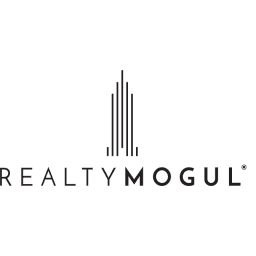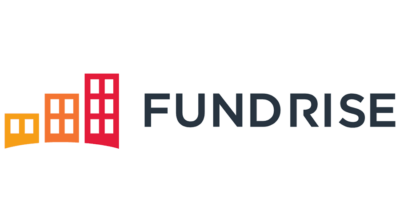Realty Mogul Review
RealtyMogul opens the door for nonaccredited and accredited investors who want to invest in commercial real estate. They offer public, non-traded REITs for a minimum investment of $5,000. However, you’ll need to be an accredited investor with a much higher minimum to access private property investments. These are highly illiquid investments, but RealtyMogul has a proven track record and is known for its in-depth vetting process.
Pros
- Open to nonaccredited investors
- Low fees
- Due diligence
- REIT buyback program
Cons
- Highly illiquid
- Complex fees
- High minimum investment
Table of Contents
Investing in real estate was seen as something only the super-rich could afford until real estate crowdfunding platforms like RealtyMogul began introducing low-cost commercial real estate investments for nonaccredited and accredited investors. RealtyMogul is one of the oldest of these platforms, and they have over 128,000 investors with over $600 million invested in properties across the U.S.
This RealtyMogul review will help you decide if investing with RealtyMogul is the right choice for you. Learn about their investment offerings, fees, how they compare to other platforms, and more.
RealtyMogul Review 2025 | Start Investing in Commercial Real Estate
About RealtyMogul
RealtyMogul is a real estate investment platform that connects investors with real estate projects across the U.S. They use the crowdfunding model to fund and realize various property types, like office buildings, multi-family units, and retail spaces.
The company was founded in 2012, and they allow both nonaccredited and accredited investors. RealtyMogul says they have over 128,000 investors with over $600 million invested on the platform via REITs (real estate investment trusts) and private placements.
As part of their goal of connecting investors with quality properties, RealtyMogul has a due diligence process that involves thoroughly vetting every sponsor and deal before listing it on their platform. RealtyMogul sends one of its team members out to complete in-person, on-location research.
Ways to Invest in Property With Realtymogul
RealtyMogul requires a $5,000 minimum investment, and from there, you can invest in three different ways:
REITs
REIT stands for Real Estate Investment Trust, and its purpose is to expose you to a diverse range of properties in a single fund. These are open to unaccredited and accredited investors.
There are two RealtyMogul REITs — one for income, and one for growth — and they’re both are public, non-traded REITs. That means they are open to the public but not traded on a stock exchange, even though they are registered with the SEC.
- MogulREIT I is RealtyMogul’s income-focused REIT, and it currently includes 11 investments nationwide and has over 6,000 investors. It’s set to pay out monthly at an annualized distribution rate of 6.00%; however, RealtyMogul says it’s distributed between 6% to 8% since its inception.
- MogulREIT II is the growth REIT, and it specializes in multi-family properties. There are 10 investments in this REIT with over 2,500 investors. Since January 2018, RealtyMogul says this REIT has made quarterly distributions of 4.5%.
You can easily see which properties are currently in each REIT. For example, the growth REIT includes apartments in Connecticut, Texas, New York, and Michigan. You’ll also see how each investment weights the overall REIT and the investment type.
A newer feature is that you can now set up auto-invest on REITs, starting at $250 per month. When you set up auto-invest, they will recommend a portfolio for you based on your goals and investment horizon.
Individual property investments
These are single properties or a small group of properties referred to as a “Private Placement,” and you’ll need to qualify as an accredited investor to access these. RealtyMogul offers equity investments in individual commercial properties, like industrial, office, retail, or multi-family.
These investments require a minimum of $25,000 to $50,000 and 3- to 7-year timeline. You should understand that these are highly illiquid, and RealtyMogul is upfront that these are generally risky and offer no guarantees of success.
According to RealtyMogul, private placements distribute on a quarterly or monthly basis from 0% to 15%, depending on the business plan and investment type. You can access the details about each investment on the platform before you invest.
1031 Exchanges
1031 Exchanges is swapping one investment property for another, allowing a deferment of capital gains taxes. You can use the RealtyMogul platform to find eligible 1031 properties. These require investments of $25,000-$50,000,000.
RealtyMogul Fees
It’s free to join RealtyMogul and start browsing the platform, but each investment has management fees, ranging from 1% to 1.25%.
There may be additional fees for REITs, including:
- Organization, offering, and other operating expenses
- Disposition fees
- Servicing fees
Overall, RealtyMogul’s additional REIT fees align with industry standards. The management fees are also fairly standard, possibly slightly higher than Fundrise, one of RealtyMogul’s main competitors. Fundrise has a flat management fee of 1%, but other fees may apply as well.
Selling Your Investments Back to Realtymogul
The types of investments you’ll find on RealtyMogul are highly illiquid, which makes sense when you think about what you’re investing in — commercial real estate developments. It takes time to fully fund, realize, and start generating income on a property. It’s a multi-year commitment.
Your ability to sell your investments back depends on the kind of investment and how long ago you started investing in the project. Overall, it takes 3 to 5 years or longer until stand-alone properties are completed, sold, and capital is returned to investors.
RealtyMogul does have a Share Repurchase Program for its REITs because these are ongoing, diversified investments. There is a tiered repurchase policy:
|
Length of ownership | Percentage of net asset value (NAV) |
|---|---|
|
Less than a year |
No repurchases |
|
1-2 years |
98% |
|
2-3 years |
99% |
|
3+ years |
100% |
It’s also worth noting that RealtyMogul doesn’t have to purchase your shares back just because you want or need to sell them, and that’s because these aren’t publicly-traded REITs. They currently only purchase 5% of shares in any calendar year.
However, during the economic downturn of 2020, RealtyShares did continue buying shares back even though most of its competitors choose to suspend their redemption plans.
It is essential to understand how illiquid this investment is before considering whether or not RealtyMogul is right for you.
Related: Farmland REIT — The Ultimate Guide for Real Estate Investors and CrowdStreet Review 2025 — Is It The Right Investment For You?
Is RealtyMogul Legit?
RealtyMogul is one of the most well-known and largest crowdfunded real estate platforms. They have over 128,000 investors on the platform, raising over $600 million in capital via its two REITs and individual property investments. Additionally, they’ve disbursed nearly $200 million back to investors.
RealtyMogul is also known for its very in-depth vetting process on its properties. They evaluate each property against 4 core criteria: the investment, the market, the property, and the real estate company. I’ve mentioned this already in my RealtyMogul, but the process includes in-person visits to the site to confirm what their team sees on paper.
RealtyMogul vs. Fundrise
These platforms are two of the most well-known options if you want to learn how to start investing in property, both have an in-depth vetting process, but the most striking difference is the minimum required investment. Fundrise recently lowered its minimum to $10, while RealtyMogul has a $5,000 minimum.
Here’s a quick chart to see how else RealtyMogul and Fundrise compare:
You can read more about Fundrise here: Fundrise Review 2025 – Invest in Real Estate With Just $10.
Who Is Realtymogul Best For?
RealtyMogul is a solid platform for nonaccredited investors who want access to a diverse set of properties through one of RealtyMogul’s two REITs. But because there is a high minimum investment of $5,000, it’s not exactly for budget investors.
There are also options for accredited investors who want access to private placements and 1031 exchanges.
RealtyMogul Pros & Cons
Pros
- Choices for non-accredited investors: You don’t have to be an accredited investor to use RealtyMogul.
- Low fees: Realty Mogul’s 1% to 1.25% are lower than average compared to industry standards.
- REIT buyback program: While RealtyMogul isn’t required to purchase shares from you when you’re ready to sell, they do give you the option. Their timeline is shorter than other platforms.
- Due diligence: RealtyMogul adheres to strict standards in its vetting process.
Cons
- Highly illiquid: RealtyMogul requires a minimum 3-year commitment for both REITs and private properties, and there are early redemption penalties.
- Complex fees: Besides the 1% to 1.25% management fee, additional fees specific to individual investments may be difficult for new investors to understand.
- High minimum investment: $5,000 is high for products geared towards nonaccredited investors.
RealtyMogul Review – The Final Word
RealtyMogul offers accredited and nonaccredited investors a way to passively invest in real estate, building a long-term income stream and wealth. However, keep in mind that this is highly illiquid, and there’s a higher minimum for nonaccredited investors compared to other crowdfunding sites, like Fundrise.
Non-publicly traded REITs overall are seen as riskier investments than publicly traded ones, but RealtyMogul has a good track record so far, even if they haven’t been around for very long. They also surprised everyone in early 2020 during the Covid-related downturn, as they never suspended redemptions while still offering returns to investors.
Disclosure: We earn a commission for this endorsement of Fundrise.

